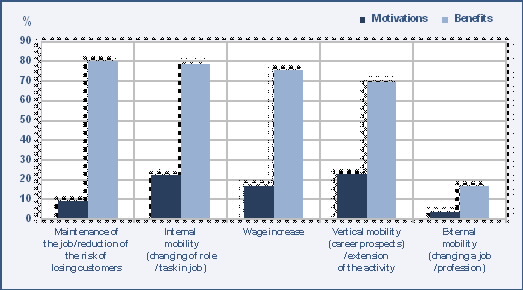Cedefop - Despite changing attitudes, employers are not yet prepared for an ageing workforce
Attitudes toward what used to be called “the demographic time bomb” are improving: Europe’s ageing workforce is increasingly seen as a factor of growth and innovation. Yet while employers are fully aware that the workforce is ageing, they do little to prepare for this change, and certainly not enough to make the best of it.
Cedefop’s latest publication on working and ageing, The benefits of investing in an ageing workforce, collects papers that examine this ‘ageing paradox” and show how investing in learning later in life can bring real benefits to companies as well as individuals. The papers cover, among other EU Member States, Germany, Italy, England, Austria and Belgium, but also look at developments in Canada and the USA; sectors discussed range from the pharmaceutical industry to retail.
The papers collected in this publication emphasise that employers need first and foremost to develop ‘demographic literacy’, i.e. to understand how to create a learner-friendly environment for employees of all ages. Successful companies, research shows, take a life-cycle approach to active ageing, addressing the learning needs of employees from recruitment to retirement.
This may require a significant change of attitude from all sides. Companies should get older workers involved in mentoring and coaching activities, and make sure their work teams capitalise on the potential of different generations working together. Workers must be encouraged to embrace learning at all ages. People over 54 can be less optimistic about whether they will get to use new skills, and it is up to their workplaces to show that their efforts will be valued. One study in Italy demonstrates that older employees underestimate the benefits of training.
Motivations and material benefits of participation in work related training activities, among Italian employees (aged 55-64) 2011 (a)

(a) During the 12 months preceding the survey. Source: ISFOL-Indaco, survey of adults’ learning behaviours, reference year 2011.
To ensure the sustainability of welfare systems, the economy needs people to delay retirement and stay employed longer. Meanwhile, the confluence of demographic decline and rapid technological change makes it imperative for both workers and companies to constantly improve existing skills.
This new environment is the reason why Cedefop has been exploring the dynamics between learning, ageing and working. The aim of this work is to underpin policies for lifelong learning and active ageing in the EU and Member States.
This collection of papers publication, the third in the series ‘Working and ageing’, follows Emerging theories and empirical perspectives, which addresses general trends, and Guidance and counselling for mature learners.
Press release as a PDF file is featured below and attached fro download
###
Contact
Press Officer Ioánna Nezi, tel.+30 2310 490186, E-Mail: [email protected]
Head of Communication, Information and Dissemination Gerd Oskar Bausewein, tel. +30 2310 490288, E-Mail: [email protected]
About Cedefop
The European Centre for the Development of Vocational Training (Cedefop), an agency of the European Union based in Thessaloniki, Greece, supports European policy-making in the field of vocational education and training. www.cedefop.europa.eu
| Attachment | Size |
|---|---|
| 2012-11-22_Press_release_Working-and-ageing.pdf | 149.13 KB |
 Printer-friendly version
Printer-friendly version- Login to post comments
- 179 reads






